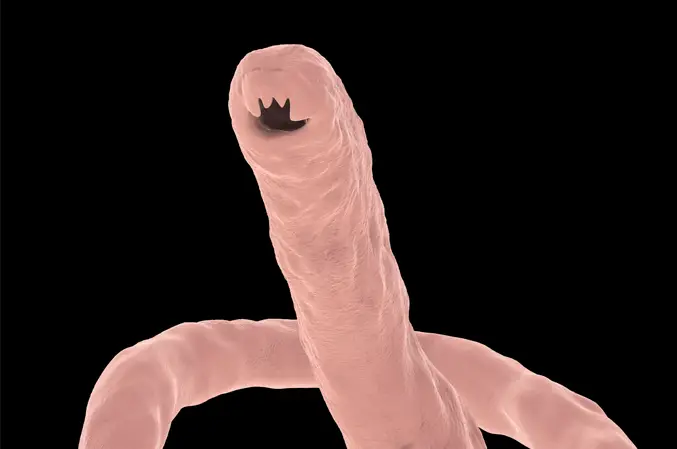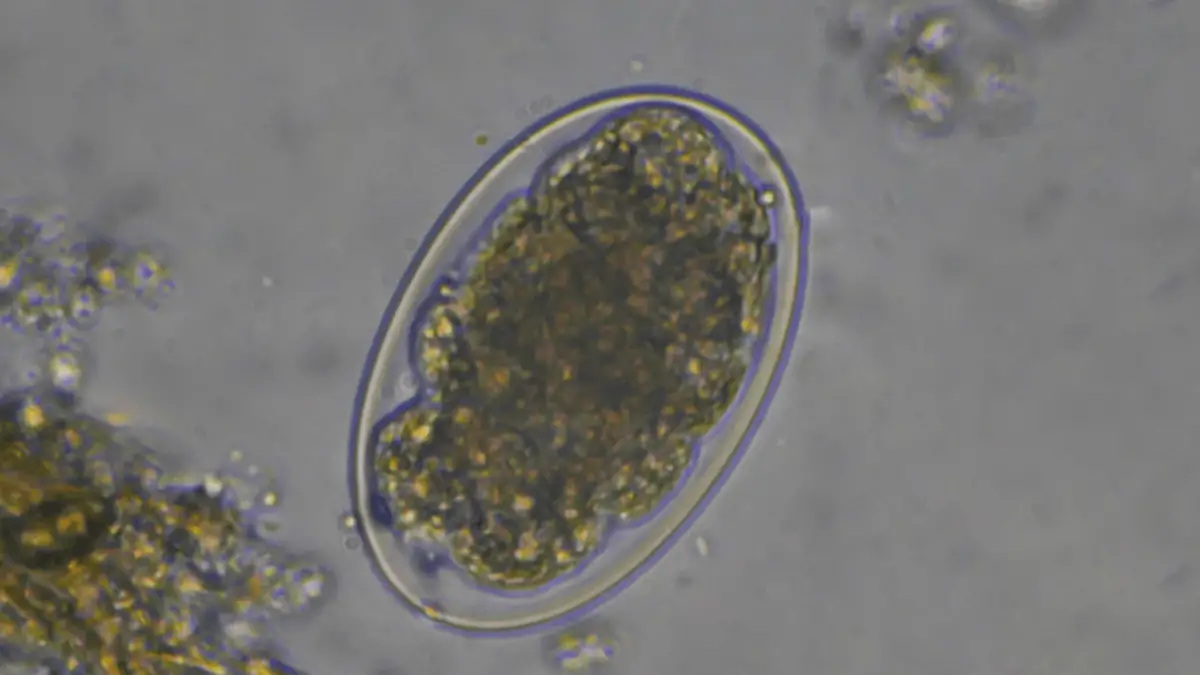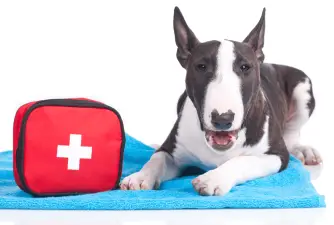Hookworms in Dogs - Symptoms, Treatment & Prevention
17.04.2021.
Different parasites can infect our dogs, and our job as dog owners is to keep our dogs healthy and safe from nasty parasites. One of these parasites is hookworm. To effectively protect our dogs from getting infected, we should learn a bit more about the most common types of parasites in dogs, and hookworms in dogs are among them. Here is what you should know about hookworms in dogs.
What are hookworms?
Hookworms are intestinal parasites that can infect cats and dogs. They got their name because of the hook-like mouthparts hookworms use to attach themselves to the infected animal’s intestinal wall. They are relatively small, the full-grown hookworm will only achieve the length of ⅛ of an inch, so they are tough to spot.
Despite being so small, they can cause a lot of trouble. Their primary food source is the host’s blood, and they can drink a lot of it. Hookworms will ingest blood from the tiny blood vessels in the intestinal wall. If the hookworm infestation is severe and their numbers are large, hookworms can cause anemia. Anemia can become life-threatening if it is not treated. If you want to know more about anemia in dogs, check out this article - Anemia in dogs.
Where do hookworms live?
Hookworms need a warm and moist climate to survive. If you live in an area with a moderately warm climate and high humidity, you should take the necessary precautions to spare your dog from these parasites.
How can my dog get hookworms?
Hookworms are adaptable parasites, and they have developed different ways to infect dogs and puppies. There are four main ways a dog can get infected with hookworms, and they are;
- Through the mother’s placenta
- Nursing
- Orally
- Through the skin

Female hookworms produce hookworm eggs that pass through the dog’s digestive tract. The eggs and the larvae will exit the dog’s body with feces, where they can remain and survive for weeks, even months. Healthy dogs can get infected by sniffing feces or even by touching or rolling the contaminated ground. A common way dogs get infected with hookworms is by walking on contaminated soil, and when they come home, they lick their paws.
Another way of infecting a dog or a cat is through the skin. The dog can roll in the ground contaminated with hookworm larvae. The larvae will bury themselves in the dog’s skin and look for their way to the lungs and trachea. There they will get coughed up and swallowed, which will allow them to reach the dog’s intestinal tract, where they can attach themselves to the intestinal wall.
Another possible way puppies can get infected is from their mothers. Pregnant or nursing female dogs can pass hookworm eggs to their puppies. Pregnancy can reactivate dormant larvae, which will enter the bloodstream and reach the placenta. This type of infection is called prenatal infection. The second possibility puppies can get hookworms is through mother’s milk. This type is called transmammary infection.
Hookworms are not the only parasite dogs can be infected with. Check out this article for more information - Worms in dogs.
Symptoms of hookworm infections
The first thing owners will notice, is their dogs are experiencing gastrointestinal distress. At this point, most dog owners don’t suspect their dogs being infected with hookworms because diarrhea can be common in dogs. The second thing that can be noticed is anemia. Hookworms can cause intestinal bleeding and severe damage to the red blood cells. The continued intestinal bleeding will cause bloody dog stool. A bloody stool can be a clear sign of hookworm infestation. Other symptoms of hookworm infestation will include;
- Lethargy
- Bloody diarrhea
- Vomiting
- Coughing
- Poor puppy growth and development
- Hair loss
- Dry coat
- Weight loss
- Skin irritations and itching
In worst-case scenarios, puppies that are heavily infected with hookworms and left untreated can die. This parasite infestation should not be taken lightly, and as soon as you suspect something, you should call your vet and ask for a check-up. The best way for vets to diagnose hookworms is to analyze a dog stool sample under a microscope.
How is hookworm infestation treated?
Luckily, scientists and vets have developed medications called anthelmintics. They are very effective in killing and eliminating adult hookworms in dogs. These medications have only slight side effects, and most dogs don’t even experience them. These medications are very safe to use, and they are extremely effective.
The main issue with hookworm medication and treatment is that the drugs only kill adult hookworms. The larvae and eggs will remain intact, so the treatment must be repeated after 2 - 4 weeks. There are no effective medications or chemicals that will eliminate the eggs, especially from the environment. You should make sure your yard is clean and free of any feces that might be there. Make sure you use plastic gloves while disposing of contaminated feces.
Panacur is a popular deworming medication for dogs. Check out this article for more information - Panacur for dogs.
Can hookworms be prevented?
Luckily, hookworms can be prevented relatively easily. There are plenty of dog dewormers available that are pretty safe to use. It is a great idea to get your dog dewormed every couple of months, especially if you live in a high-risk area. You can prevent human infections simply by applying good hygiene.
Another great piece of advice for hookworm prevention and prevention from other parasites is to clean the environment your dog is living in. Make sure your yard is feces-free, and you don’t allow your dog to eat weird things like dog or cat poo. Make sure you talk to your vet and ask for specific advice for your individual dog.
World Dog Finder team







Share